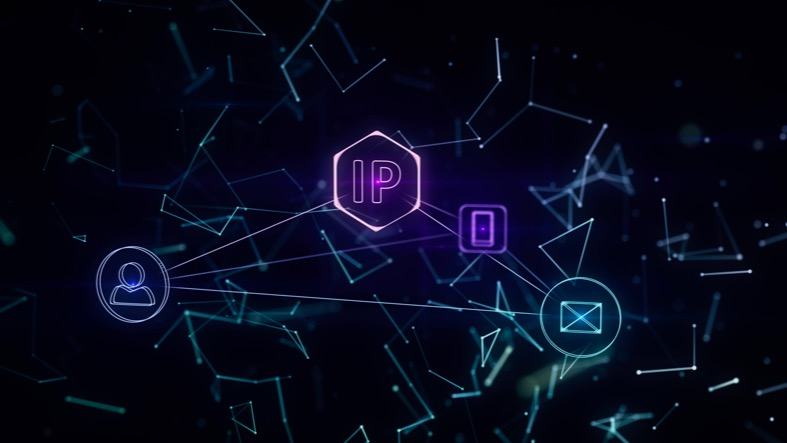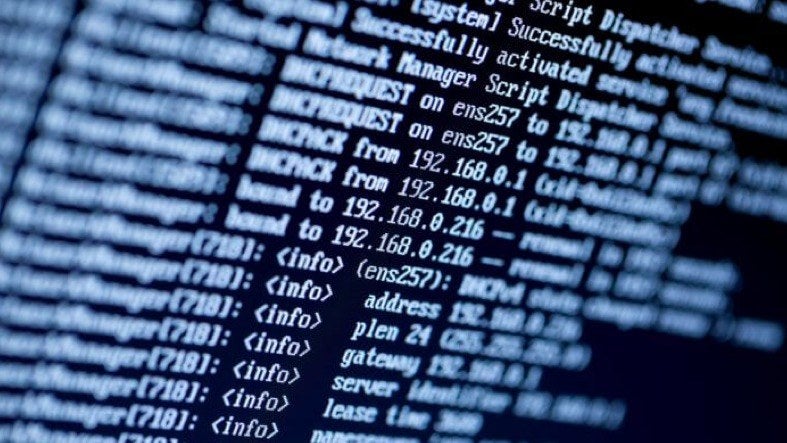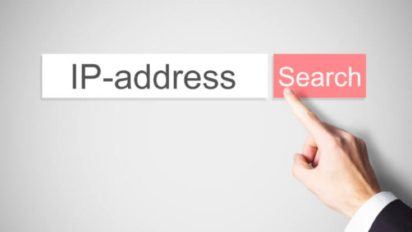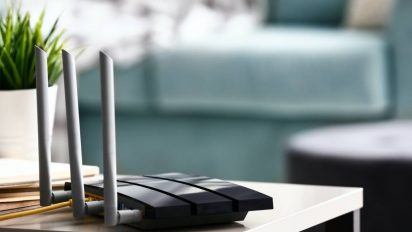Commonly called the ZIP codes of the internet, used to identify every device online, Internet Protocol, or IP, addresses surround us. Every internet-connected device has two of them — a public IP address and a private IP address.
Both serve different purposes, which might explain what’s occurring when your Wi-Fi network and devices can’t seem to get along. You might be surprised to find there’s a lot more to an IP address than just a series of numbers.
We’ll break down the basics of the IP address and why you should know yours.
- What is an IP address?
- How do IP addresses work?
- What are the different types of IP addresses?
- How do I check my IP address?
- Why should I know my IP address?
Here’s everything you need to know about IP addresses.
What is an IP address?
The IP address refers to the unique string of numbers that identifies your devices — such as a computer, tablet, smartphone or smart TV — as they communicate across networks on the internet. In short, IP addresses are vital in getting online and transmitting data.
With totally unique numbers, your IP address may look a little something like this: 216.3.128.12
How do IP addresses work?
Typically, Wi-Fi networks aren’t examining devices in detail. Instead, they glance at IP addresses to identify a device. Both the Wi-Fi network and nearby devices are communicating, and IP addresses ensure all connections know the others.
From the IP address alone, the Wi-Fi network understands where to send and receive data at any time. Each connection gets assigned two IP addresses, and a Wi-Fi network latches onto them. When setting up your Wi-Fi network or troubleshooting issues, IP addresses are integral due to their representation of all connections.
According to Google, the IP address “works like a return address would on a piece of mail.” Rather than putting only a name, you write down both the mailing and return addresses so a piece of mail knows where to go and where to return in case of error. IP addresses are similar as they guide data between networks, servers and devices. Without IP addresses, data wouldn’t know where to travel.

There are two versions of IP addresses: IPv4 doesn’t allow many devices to be assigned IP addresses. The new version, IPv6, enables a larger number of devices to be assigned IP addresses and connect simultaneously. You’ll benefit most from purchasing a Wi-Fi router and devices with IPv6.
What are the different types of IP addresses?
IP addresses also come in different types. Most likely, you’re on a combination of a public IP address that uses a connection from an internet service provider and a private IP address for connections on your own devices. Basically, a public IP address links you to the outside world while a private IP address handles local activities.
The two types are directly related as one gets you online while the other enables inter-device communication. Computers use public IP addresses since they’re tapping into outside resources. But a wireless printer will leverage a private IP address to accept requests from external devices. It’s all about getting devices to communicate.
You can also think of IP addresses in terms of dynamic and static. Dynamic IP addresses automatically change for each connection. The address will be altered for every computer, smartphone and tablet that joins the Wi-Fi network. Static IP addresses remain the same for easier identification and management.
How do I check an IP address?

From any web browser, use Google to search “what is my IP address” or simply “IP address.” The search engine will return an answer box at the top of the page that includes your IP address.
Additionally, you can check your IP address directly from your devices in the network settings. There are also a variety of online resources — IP Location Finder, IP-Lookup and WhatIsMyIP.com, to name a few — that get the job done just as quickly.
Why should I know my IP address?
Knowing your IP address will assist you in setting up, managing and troubleshooting your Wi-Fi network. It’s wonderful when everything performs perfectly, but there will definitely be moments when you may need to play technician. Before you rush to pay someone for a fix right away, look at your Wi-Fi network’s settings to see if there’s an IP address-related problem.
For more educational guides on your home Wi-Fi network, bookmark our Resource Center or follow us on Facebook or Twitter.
Last updated on 07/01/20.
Written by:
Taylor GadsdenWriter, Broadband Content
Taylor is a veteran member of the Allconnect content team and has spearheaded a number of projects, including a data piece on the top fiber cities in the U.S. and a troubleshooting guide on how to connect your p…
Read more
Edited by:
Trey PaulEditor, Broadband Content
-
Featured
![How to change your IP address]() How to change your IP address Camryn Smith — 3 min read
How to change your IP address Camryn Smith — 3 min read -
Featured
![How to find your router IP address]() How to find your router IP address Allconnect — 5 min read
How to find your router IP address Allconnect — 5 min read -
Featured
![What does “IP address conflict” mean and how can you resolve it?]() What does “IP address conflict” mean and how can you resolve it? Virginia Brown — 4 min read
What does “IP address conflict” mean and how can you resolve it? Virginia Brown — 4 min read
Latest
-
Thursday, April 18, 2024
Comcast introduces new pre-paid internet, mobile and streaming plansRobin Layton — 2 min read
-
Thursday, April 18, 2024
T-Mobile imposes data cap of 1.2TB/mo.Robin Layton — 2 min read
-
Thursday, April 18, 2024
What is a portable Wi-Fi hotspot?Robin Layton — 6 min read





